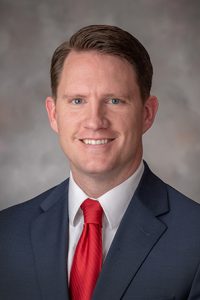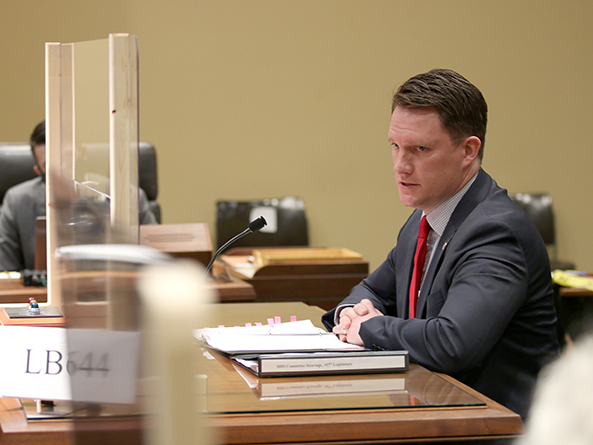Property tax requests would require joint public hearing
Political subdivisions seeking to increase the amount of property taxes they collect would have to hold a joint public hearing under a bill considered Feb. 10 by the Revenue Committee.

Under current law, if the governing body of a county, city, village, school district, learning community, sanitary and improvement district, natural resources district, educational service unit or community college intends to increase its property tax request as a result of increased valuations, it may do so only after holding a public hearing called for that purpose and by passing a resolution or ordinance.
Under LB644, introduced by Sen. Ben Hansen of Blair, those political subdivisions could increase their property tax requests only if they participate in a joint public hearing.
The bill would require counties to notify affected taxpayers of the hearing by postcard, the cost of which would be shared by the political subdivisions seeking to increase their property tax request. Notice also would be posted on the main page of the relevant county’s website.
Hansen said current law does not require political subdivisions to send taxpayers direct notification of a property tax request hearing.
He said a postcard showing the amount that an individual’s taxes would increase would be more effective at getting their attention than the currently required newspaper advertisement.
The proposed hearing would be held after 6 p.m. between Aug. 20 and Sept. 20 and would be open to public testimony. Its agenda would include only the property tax request proposals.
Each political subdivision at the hearing would present certain information, including the:
- amount of the property tax request;
- percentage difference in total assessed value of property from the prior year;
- tax rate that, when multiplied by the new total assessed value of property, would generate the same amount of property taxes as the prior year;
- tax rate resulting from the proposed property tax request; and
- percentage by which the political subdivision’s total operating budget would exceed the prior year’s.
The required notice and the resolution or ordinance setting the property tax request would include the same information. The resolution or ordinance would have to be certified and forwarded to the county clerk on or before Oct. 15 of the year for which it is to apply.
If political subdivisions raise their property tax request without following the bill’s provisions, their levy would be considered unauthorized.
Sarah Curry, policy director at the Platte Institute, testified in support of the bill. She said many Nebraskans are unaware of the currently required hearings and that 77 percent of respondents to a recent Platte Institute poll would support a mailed notification of a property tax hearing.
Testifying in opposition to the bill was Lynn Rex, executive director of the League of Nebraska Municipalities. Under LB644, she said, political subdivisions would have to hold two separate hearings on property tax requests.
Rex said some counties contain more than two dozen political subdivisions, some of which are regional entities covering more than one county, factors that would complicate finding a time and place for a joint hearing.
Colby Coash testified in opposition to LB644 on behalf of the Nebraska Association of School Boards and other education groups. School boards already discuss their budgets and property tax requests in open session, he said.
Coash said a bill passed last year added requirements similar to those in LB644, including a provision for stand-alone budget hearings at which the public has an opportunity to speak.
The committee took no immediate action on the bill.


